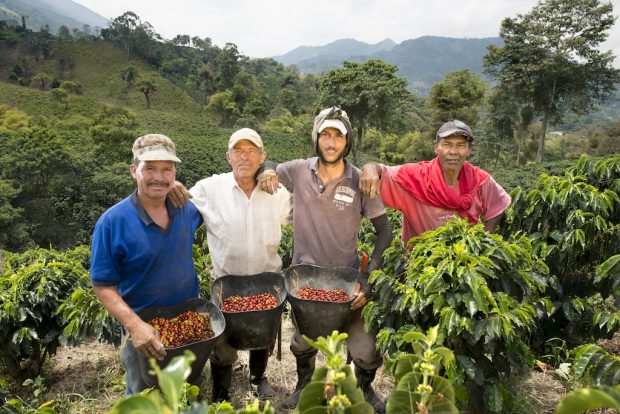(editor’s note: This is the third post in an ongoing series in which members of the SCAA Sustainability Council will be addressing their current work, while sharing opportunities and insight for coffee industry involvement.)
Labor is a key factor for the success and viability of the coffee industry, yet farms are currently struggling to recruit and retain field hands due in part to urban migration and low incentives for performing rural work.
Aware of this problem, the SCAA Sustainability Council has been developing a strategy in order to gain a greater understanding of the situation and intended to inform the industry in general. One component of this strategy was the commissioning of a study that could answer the following questions:
- How is the situation of field hands who work on coffee farms perceived by both producers and workers, taking into account such factors as labor conditions, wages (expectations vs. paid), dangerous work-related activities, housing conditions when they reside on the farm, compliance with labor laws, and understanding their contribution to coffee quality?
- How distant is the actual situation of farmworkers from that stipulated by national labor requirements?
- What are the main threats and opportunities that workers and producers see for the coffee industry in the current or future situations of farm workers?
- What strategies do corporate and family farms employ to recruit and retain their labor?
- What are the most common mistakes coffee estates make that lead to farmworker attrition?
- What can the coffee chain do to support the retention and motivation of the workforce?
- From the workers’ viewpoint, what do they most value when deciding to keep working on a farm?
The SCAA commissioned the study to the international organization Solidaridad. The study was conducted in Nicaragua and Colombia, using a case study approach. From this study, Solidaridad indicates the following:
There are structural problems related to labour that need to be resolved in order for coffee to become sustainable. Although key industry players such as producers, owners of corporate farms and sector associations are trying to find solutions, the entire coffee industry needs to include labour conditions in its lists of future priorities. This will require a change of mentality as for many years we have focused on producers, forgetting farm workers as a crucial link of the value chain.
Among the report’s additional reflections are:
- The need to assess workers contribution to the coffee industry,
- The effect of crop seasonality over the annual wage of workers
- The difficulties involved in applying social benefits not only for workers but also for farmers,
- The necessity to categorize young labor,
- The need of having a better understanding of production costs and pay the coffee accordingly.
In addition to the problem description, the study describes elements that workers consider important at coffee farms, including “food/housing conditions, wages received compared to neighboring farms, productivity of farms, having respectful employers and the proximity to urban areas with mobile reception and access to electricity. The ultimate goal of workers is to make a living and find work stability at farms that they can return to year on year.”
As a next step in the search for plans to alleviate the problem of shortages of labor, the Sustainability Council will support a pilot that Expocafé and the Coffee Growers Cooperative of Aguadas are developing in Colombia to test how improving working conditions and training for workers could help to attract and keep labor in coffee. The pilot will also generate labor market information that could be used to scale solutions applicable to other cooperatives and other regions, and for the benefit of the industry in general.
This initiative has the support and active participation of RGC Coffee, Solidaridad, CRECE, UTZ and FTUSA.
The organizations involved in the pilot want to prove if generating conditions that improve worker welfare can motivate them to work on coffee farms, with the quality criteria, timeliness and productivity required by the supply chain.
The pilot also intends to encourage industry participation for joint interventions with farmers and producer organizations to improve working conditions on coffee farms.
Intervention mechanisms will be organized into three components: (i) Dignify the work in the farm, (ii) Improve basic benefits for the worker, and (iii) Information for employment.
In order to document the pilot and report the results, a set of indicators to monitor the performance of the pilot will be developed. The monitoring of the indicators will be performed during the implementation of the pilot and at the end of the first year.
The Sustainability Council will support this process and hopes that the results from this pilot will help to explore alternatives and interventions with the potential to benefit of workers, farmers and the industry at large.
Angela Peláez
Angela Peláez has worked in coffee since 1998. She currently works for Expocafe S.A in Colombia as Sustainability Director and serves as volunteer of the Farmworker Committee of the Specialty Coffee Association of America Sustainability Council, as well as member of the UTZ Coffee Product advisory Committee. Her work seeks to create value for coffee producing communities through the supply chain.







Comment